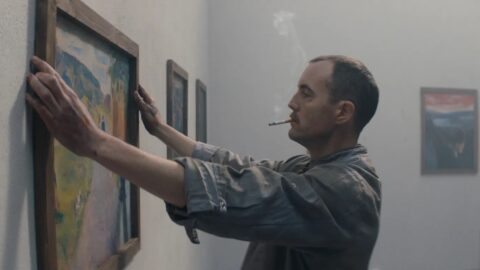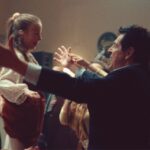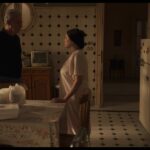Edvard Munch is unstuck in time.
I didn’t expect this. I expected a man to have a painful childhood, discover his genius then overcome a series of obstacles before painting “The Scream” (1893). With painter biopics — dappled in light, obsessed with reproductions, overly concerned with beauty, capturing the tortured talents of a powerful white male with some kind of undiagnosed mental health problem — you usually get exactly what you expect.
Not with Munch (Henrik Martin Dahlsbakken, 2023). It opened Rotterdam Film Festival today. While it does have those scenes where he’s wearing a wide-brimmed white hat, lugging his canvas and paints through long grass and staring at fjords, this is only one part of a larger multifaceted three-century portrait of a character unbound by location; fitting for one of the great Modernists, whose paintings captured the existential howling of a continent going into war while also inspiring the entire expressionist movement.
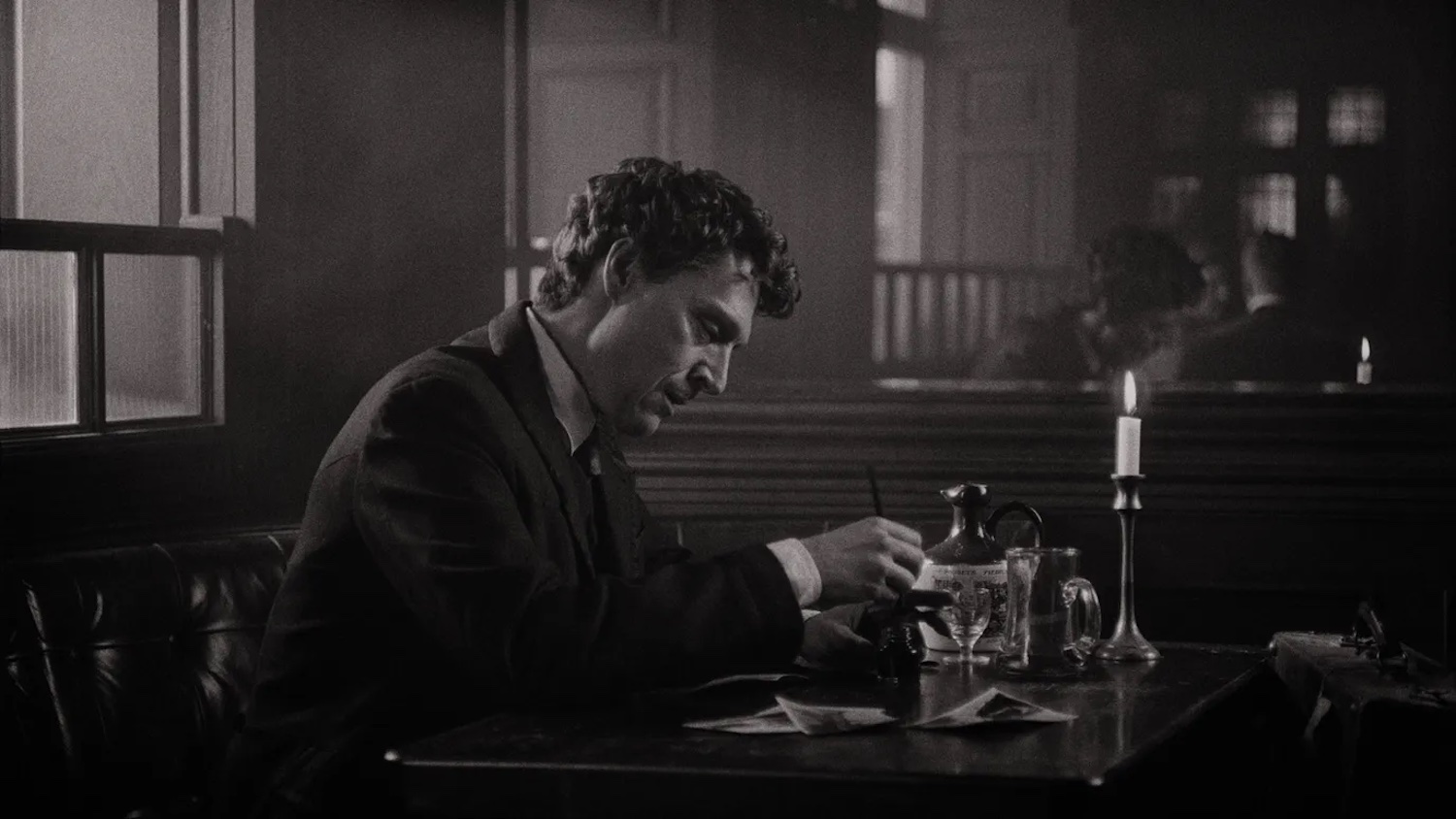
Less classic Munch, then. More Munchausen, perhaps. We see the painter in four different eras, played by four different actors. It starts in the twilight of his career in 1944. He’s slowly dying while the Nazis are interested in appropriating his work. In an inspired bit of gender-bending, I’m Not There-style (Todd Haynes, 2007) casting, Anne Krigsvoll plays him as an irascible old man, refusing to bow for the new occupiers.
So it goes. We expect the inevitable flashbacks to follow. And they do. A mental institute in Copenhagen. A country house with a potential lover. I wondered to myself: What will inspire him? Who will he fall in love with? What is going to hold him back? But before I knew it, we were transported to present-day Berlin — Munch is in clubs, speaking English and German, sinking Berliner Kindls with his Swedish contemporary August Strindberg. The transitions are abrupt, slight shifts in camera movement jolting the viewer between period and modern; making the past seem more contemporary and putting the present within a larger artistic tradition.
Moving between styles and aspect ratios, the film touches on various different strands of Norwegian and Scandinavian literary and theatrical traditions. His Copenhagen scenes — caught in small, rectangular, black-and-white — evoke the directness of Knut Hamsun; there’s a touch of Strindberg’s dramas or Bergman’s early films in his youth; and there’s even a Knausgaardian intensity and awkwardness to the Berlin sequences. All the while, the bold jumps in time, changes in style, and overall playfulness can be traced back to Ibsen’s Peer Gynt (1876) — a much more daring, fascinating play than perhaps people remember.
This experimentalism was totally unexpected. It elevates Munch considerably, shaking off the cobweb trappings of period drama into something tonally diverse and intellectually probing.
What links the four? Arguments, passion, and an insatiable desire to drink. At his worst point, he drinks beer in the morning and polishes off an entire bottle of cognac during the rest of the day. Perhaps the alcohol is causing a rapid deterioration in his mental state, allowing the artist — whose work has lost little of its directness — to seemingly see himself beyond his own body; beyond space and time.
At one point, he discusses a work of art with a lady friend. He mentions that he prefers art that operates at a particular frequency instead of telling a conventional story. Munch, while imperfect, certainly attempts to achieve this sustained emotion of a man consumed by the need to find the correct mode for his feelings while shaking up the established bourgeois traditions. In reinterpreting the conventional biopic, Munch captures the spirit of the man as opposed to his mere life.
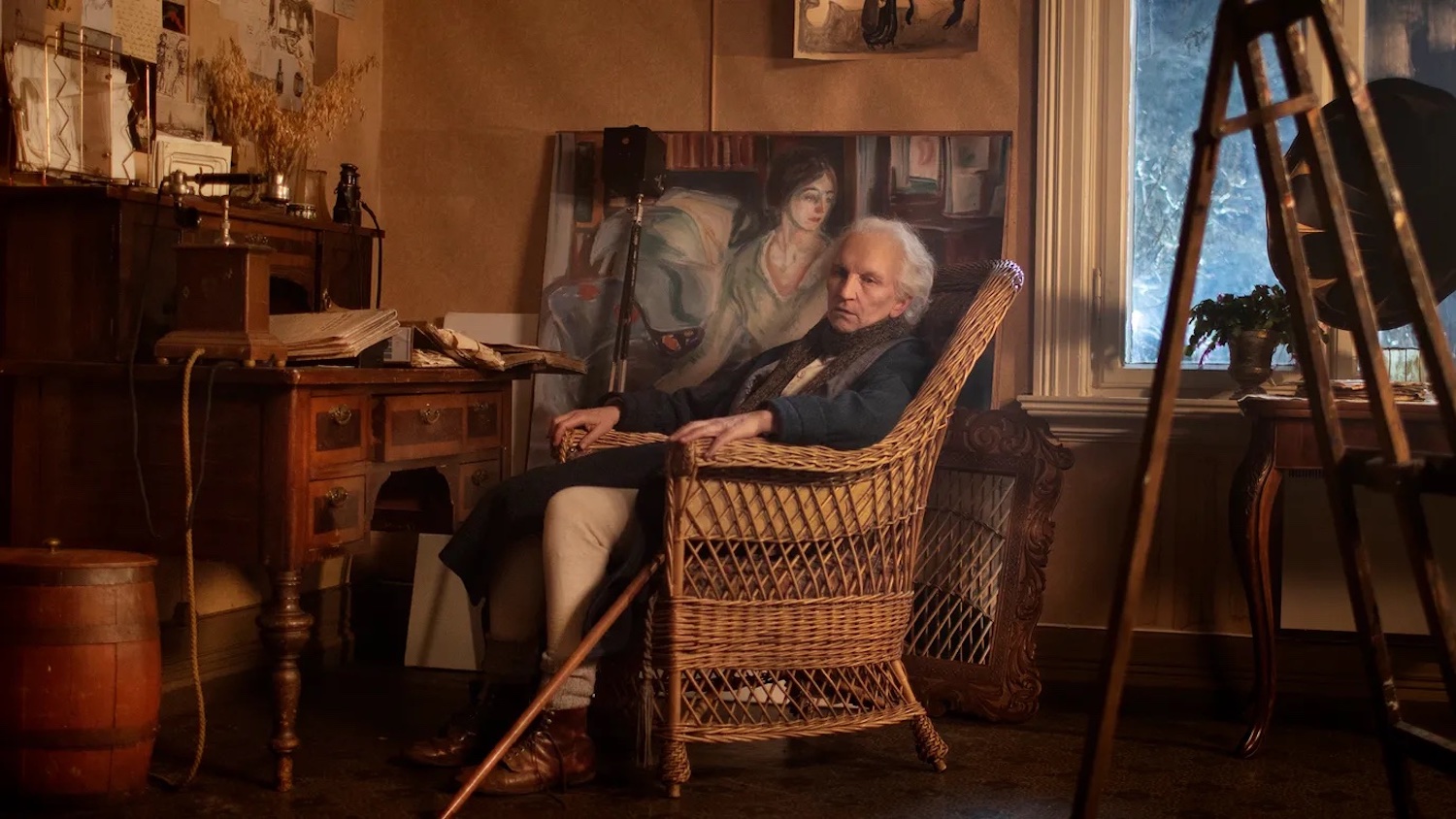
Yet the need to put a neat bow on four separate endings (plus the obligatory montage of his paintings, including, finally, the four versions of “The Scream”) calls to mind the exhaustive desire for completion in Everything Everywhere All At Once (The Daniels, 2022) and Cloud Atlas (Wachowski Sisters, 2012). It also paints the film into its own corner by adhering to multiversal formula. Still, I found myself engaged throughout.
I love it when a film surprises me. Especially opening night movies. They’re usually incredibly pedestrian. But this inspired biopic does exactly what it should do: make me want to get on a flight to Oslo and go see some of the man’s paintings. And maybe one day, or in another version of reality, I will.

Redmond is the editor-in-chief of Journey Into Cinema.
